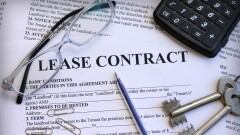As 2021 comes to a close, high levels of economic and public health uncertainty persist as they have for the past two years, but there’s plenty of reason for optimism about the year ahead. In a recent Deloitte Insights piece,
As they have for the past two years, real estate accountants will continue to play a pivotal role in how their companies perform in 2022. Some of the commercial real estate patterns observed in 2021 will likely continue in the year ahead, but COVID-19 isn’t in the rearview mirror yet. Developing a post-pandemic strategy will be the key to future success for real estate accountants. Here’s a closer look at three real estate accounting trends for the year to come:








